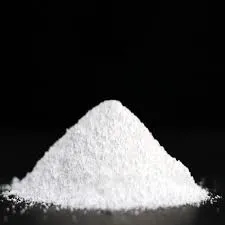chemical cooling tower water treatment
Optimizing chemical cooling tower water treatment can be a critical component for any industrial facility seeking to enhance efficiency, longevity, and safety. Cooling towers play an integral role in regulating temperatures in large commercial buildings and industrial processes. However, cooling tower systems, when not treated correctly, can become breeding grounds for bacteria, scaling, corrosion, and other issues that can significantly hinder performance. It is crucial to deploy an effective water treatment strategy that not only complies with regulatory standards but also maximizes operational efficiency.
Expert Insight into Chemical Water Treatment
The role of chemistry in treating cooling tower water cannot be overstated. Chemical water treatment entails the use of various chemical formulations to balance the water chemistry, thereby preventing scaling, microbial contamination, and corrosion. These three factors are the primary challenges that cooling tower systems face, potentially reducing both efficiency and lifespan.
Scaling Mineral build-up, or scaling, occurs when dissolved minerals in the water precipitate out of the solution, creating deposits on pipes and heat exchange surfaces. This can be managed through the use of scale inhibitors, which are chemicals designed to increase the solubility of the minerals and prevent them from forming scale. Facilities often deploy phosphonates and polymers that act as sequestrants, binding with calcium and other ions to keep them in solution.
Microbial Growth Bacteria and algae can proliferate in the warm, moist environment of cooling towers, posing health risks and operational inefficiencies. Treatments with biocides are necessary to control microbial growth. Oxidizing biocides like chlorine and bromine can rapidly kill microbes by breaking down their cell walls, whereas non-oxidizing biocides such as isothiazolinones act over longer periods and target particular metabolic pathways of the microbes.
Corrosion Proper chemical treatment also involves corrosion control, which is vital to protecting the metal components of the cooling system. Corrosion inhibitors work by forming a protective film on the surfaces of the metals, impeding direct interaction with corrosive substances. Common inhibitors include phosphates, molybdates, and silicates, which help to shield steel and other metals effectively.chemical cooling tower water treatment
Experience-Based Strategies
Chemical treatment strategies must be customized based on specific cooling tower conditions, including water quality, materials of construction, and operational parameters. Implementing a comprehensive water analysis program can provide valuable insights into the specific challenges faced by a cooling tower system. This data-driven approach allows experts to formulate a targeted treatment plan.
Authority and Trust in Treatment
An experienced chemical water treatment provider will employ a blend of industry knowledge and advanced technology to design a program that aligns with the particular needs of a facility. Engaging with manufacturers and service providers who possess certifications, endorsements, and a proven track record can ensure the highest standards of trust and reliability in treatment execution.
The laboratorial and on-site expertise provided by professionals ensures that predicted outcomes are achieved, and potential issues are mitigated before escalating into costly failures. Major companies in the sector often provide detailed case studies and documented evidence of successful implementations, which can inform new clients about the effectiveness of their solutions.
In conclusion, the significance of a tailored chemical cooling tower water treatment cannot be underscored enough. With the correct chemicals, expertise, and execution, facilities can safeguard their systems against the harmful effects of scaling, microbial growth, and corrosion. Establishing a partnership with a reputable water treatment company helps to secure these benefits, ultimately supporting sustainability, cost-efficiency, and compliance. By emphasizing experience, expertise, authority, and trustworthiness, an optimized treatment program guards against potential downtimes and extends the life cycle of the cooling system – securing a plant's continuous productivity.
More product recommendations



